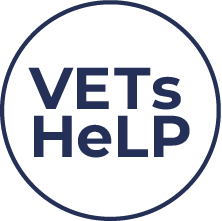Surgical Safety: building a culture of vigilance
Surgical safety isn’t just about preventing rare, catastrophic mistakes — it’s about creating systems and behaviours that keep patients safe every single day. In this episode of The Huddle Podcast, Susie Helmrich is joined by perioperative nursing expert Deb Evans to explore why surgical safety is fundamental to patient care and how health teams can maintain high standards, even under pressure.
Why surgical safety matters
From the first pre-admission phone call to the moment a patient leaves hospital, surgical safety runs like a thread through every stage of perioperative care. Safety protects patients from preventable harm — such as wrong-site surgery, retained instruments, medication errors, and anaesthetic complications — while also reducing stress and error risk for staff by fostering teamwork, clarity, and open communication.
Managing the challenges
While the “gold standard” is clear, real-world pressures can put surgical safety to the test. A packed surgical list, a late patient arrival, and a surgeon asking to “hurry up” can all create the temptation to cut corners. Time pressure is one of the biggest threats to safety culture.
The WHO surgical safety checklist and the ACORN standards provide vital safeguards, but they only work if teams engage with them meaningfully. Skipping steps might seem harmless when nothing goes wrong, but this is where risk quietly accumulates:
“Every time we bend the rules, we’re creating potential holes in the swiss cheese. When those holes line up — whether it’s a distracted surgeon, a patient with dementia who can’t confirm the surgical site, or a missed checklist — that’s when errors happen.”
Supporting a culture of safety
The solution isn’t about selectively enforcing safety protocols — it’s about embedding them into routine practice. Surgical safety should be approached like surgical handwashing or gowning: performed the same way, every time, but with purpose and vigilance.
When teams understand the why behind each step, checklists shift from being a tick-box exercise to a shared commitment to patient outcomes. That sense of collective accountability transforms surgical safety into a culture — one where every voice matters and every action protects both patient and team.
🎧 Listen to the full conversation with Susie and Deb as they unpack how to keep surgical safety meaningful, overcome resistance to checklists, and embed a culture of vigilance into everyday practice.

Susan is the Head of Nursing Education for the Medcast Group.
DipAppScNsg, BN, CritCareCert, CoronaryCareCert, TraumaNsgCareCert, CertIV(TAE), MN(Ed), and GradCert(Ldrshp & Mgt).
Become a member and get unlimited access to 100s of hours of premium education.
Learn moreExplore the PRECISE project and how genomics is shaping general practice, with insights on reproductive screening, general genetic testing, and practical tools to support GPs in everyday care.
The Huddle is your space to pause, reflect and grow as a nurse. Whether you’re on your commute, in the tea room, or walking the dog, each episode is designed to bring you practical insights, clinical reasoning tips, and stories from the frontline of nursing.
As veterans transition from military service, they often face significant mental health challenges, including post-traumatic stress disorder (PTSD), depression, anxiety, and adjustment difficulties. Managing these complex conditions requires a holistic, long-term approach, and general practitioners (GPs) are in a unique position to support veterans not only through referrals to mental health specialists but also through evidence-based lifestyle interventions that promote resilience and recovery.


